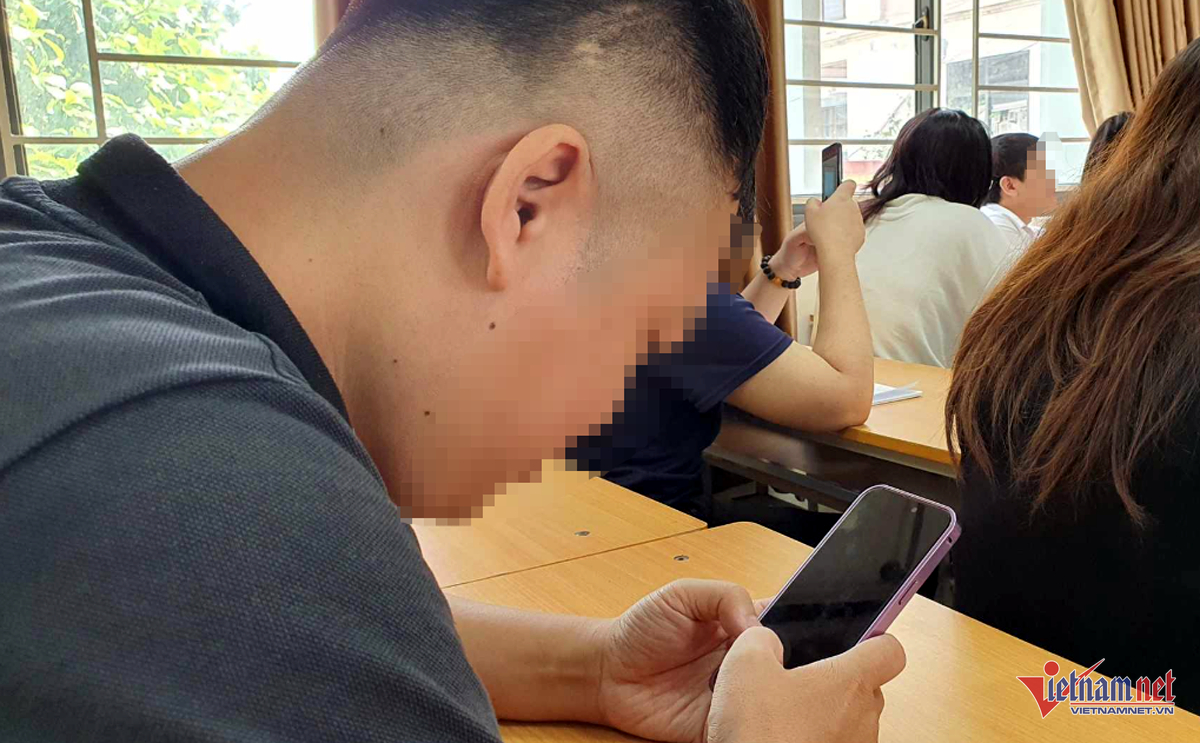
Many residents in Hanoi have reported receiving scam calls or messages via Zalo or SMS, demanding immediate electricity bill payments and threatening disconnection if the payments are not made.
Widespread scam calls
Pham Van Uoc, a 42-year-old resident of Hoai Duc District, recounted his experience on January 6 when he received a call from an unknown number.
“They knew my name and address and demanded payment for my electricity bill, threatening to cut off the power if I didn’t comply,” he said.
When Uoc asked how to avoid the disconnection, the caller directed him to download an app and make the payment through it.
Suspicious of the app’s legitimacy, Uoc pretended to comply and claimed he had completed the payment.
An hour later, the scammers called again, stating the transaction had failed and reiterated their threat to cut the power.
When Uoc displayed no fear of disconnection, the caller resorted to insults before hanging up.
The next day, his wife received a similar call.
Nguyen Van Ha, a 34-year-old from Dong Da District, also received repeated calls urging him to make payments via an app.
Fortunately, Ha chose to verify the claim directly with an official electricity bill collector and discovered it was a scam.
Nguyen Thanh Huong from Nam Tu Liem District shared her experience of receiving a call at 5:28 p.m. on January 8 from a number starting with 03351075XX.
“The caller said there was an error in my payment record, and my household owed electricity bills. They emphasized that I needed to pay immediately to avoid disconnection,” Huong recalled.
Recognizing the signs of a scam, she calmly asked, “Which electricity bill?”
The scammer hesitated, asking if she had already paid for the month.
When Huong replied that she was not the person responsible for paying the bill, the caller demanded the phone number of the payer.
At that point, Huong ended the call and blocked the number.
Unmasking the scam
These fraudulent calls have become increasingly common, and not everyone has the knowledge to identify and avoid the traps.
Scammers often impersonate electricity company employees and claim issues such as overdue payments, large debts, or technical errors in the billing system.
Using caller ID spoofing technology, they manipulate phone numbers to appear as if they are from official electricity providers, thereby gaining victims' trust.
In addition to calls, scammers send SMS or Zalo messages pretending to be from the electricity company. These messages include bank account details or fraudulent links for payment.
Messages typically state, “Your electricity bill for this month is unpaid. Please transfer the amount to the following bank account to avoid disconnection.”
Scammers may also send links to fake payment websites or apps mimicking official electricity company platforms.
To add credibility, they often have access to customers’ names, addresses, and electricity billing information, obtained through illicit means.
Sophisticated schemes include sending QR codes bearing the logo of the electricity provider (such as EVN) to trick victims into scanning and transferring money.
Official warnings and advice
The Hanoi Electricity Corporation (EVNHANOI) has confirmed that it does not collect payments via Zalo or SMS and advises customers against making payments through these channels.
EVNHANOI emphasized that its employees maintain professional customer service and would never display rudeness or unprofessional behavior.
The Department of Information Security under the Ministry of Information and Communications advises the public to remain vigilant against unknown callers and messages.
It recommends exercising caution when following instructions or transferring money to unverified sources.
If someone falls victim to these scams, they should report the incident immediately to local police for assistance and resolution.
Tien Dung